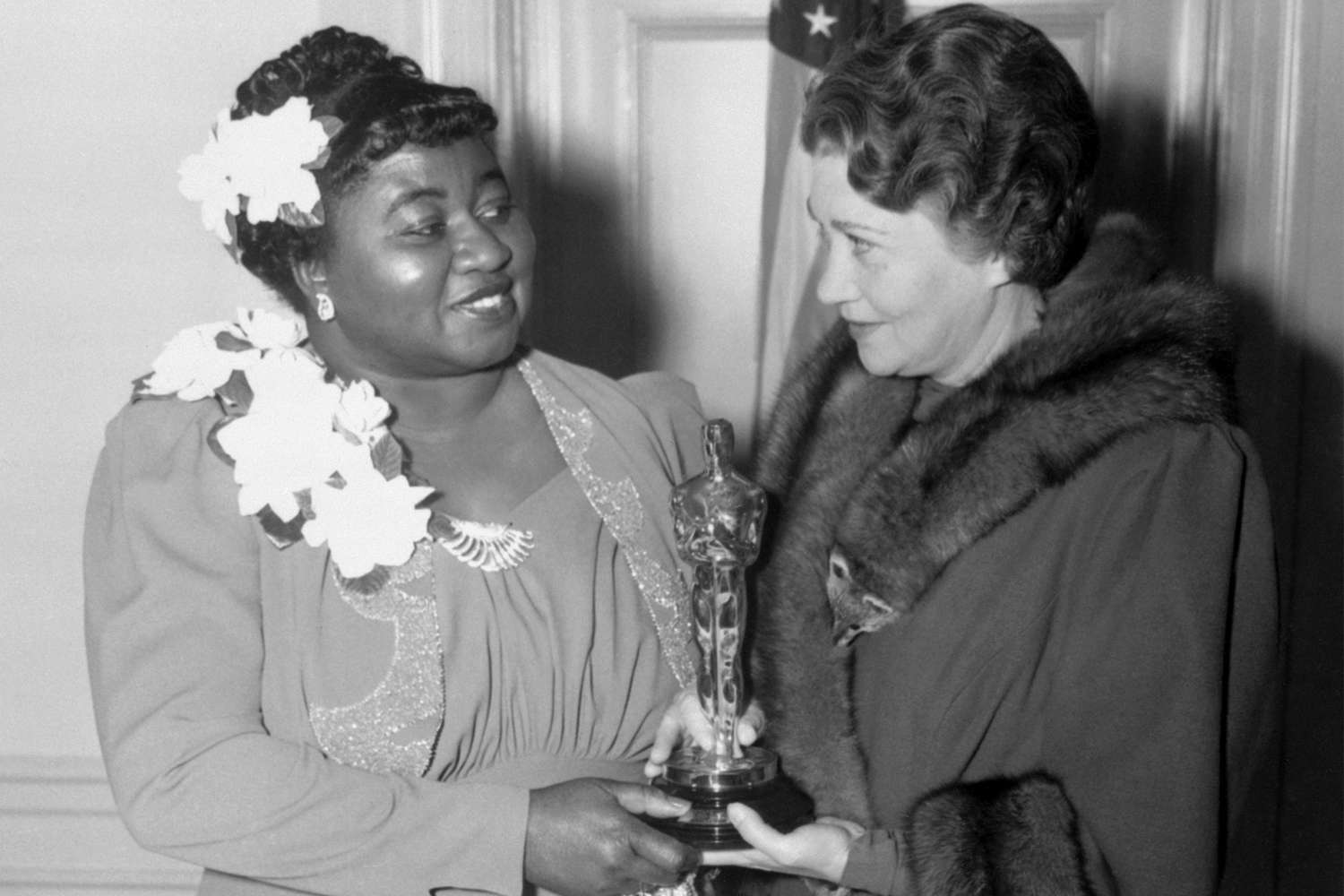Hattie McDaniel proclaimed her Academy Award for playing Mammy in Gone With the Wind to be a “beacon” for her future.
The first Black actor to win an Oscar, she remained the only woman to do so for 51 years.
In bequeathing her plaque to Howard University, she hoped to inspire future generations of Black artists. But that beacon’s light dimmed when her award went missing at the end of the 1960s. For years, fans and the actress’s family hoped for a replacement, including McDaniel’s great-grandnephew Kevin John Goff.
“Quite a few people over the years had come up to me and said, ‘Hey, you need to protest and basically bang on the Academy’s door, hold a picket sign, those kinds of things,'” Goff tells EW. “I wasn’t interested in that particular type of method or energy. My thought was that that was going to take care of itself, and I was confident of that. I didn’t feel the need. To me, it would’ve felt like begging. And in my mind, she won the award. She deserved to win it. My thing was to just press on and continue with the work my father was doing and researching and getting her legacy out there in a broader way. I felt from those efforts that the moment would come for the replacement.”
Bettmann Archive/Getty Images
And it did — on Oct. 1, 2023, when the Academy presented Howard with a replacement. Jacqueline Stewart, director and president of the Academy Museum, credits the movie museum’s Oscars display, which includes an empty case symbolizing McDaniel’s lost award, with spurring more interest than ever before. “It was important to recognize her historic win, even if we didn’t have the actual object,” Stewart says. “The power of that empty space galvanized so much attention that it made us restart the conversation [of replacing it].”
Goff also credits the museum’s display for renewing interest in McDaniel’s win and its history. “Her Oscar’s the only one that’s missing in that exhibit,” he adds. “It does give you a shock.”
Getty Images
Goff inherited the task of maintaining McDaniel’s legacy from his father — and the restoration of her Oscar to Howard legacy marks a major highlight in his efforts. “It shows that she’s still relevant,” he reflects. “That she accomplished a lot in her career to have a vast amount of people who were elated by the Oscar being replaced. It’s something that my father would’ve loved to have seen. I’m appreciative and grateful to the Academy for replacing her Oscar. It was long overdue.”
Stewart defines McDaniel’s win as one of the most significant in Oscar history. “It’s important to read her performance through the struggles that she and Black people all over the country were experiencing,” she reflects. “She understood that she wasn’t just doing this work for herself, but that she was trying to open doors for the possibilities for future generations of Black artists. It’s a reminder of all the struggles and the long road that it takes to get to that place on stage.”
Getty Images
Now, enshrined in its new home at Howard University’s Chadwick Boseman College of Fine Arts, McDaniel’s Oscar can perpetuate her desire, as declared in her acceptance speech, to be “a credit to my race and to the motion picture industry.”
Want more movie news? Sign up for Entertainment Weekly‘s free newsletter to get the latest trailers, celebrity interviews, film reviews, and more.
Related content:
